Why Universities and Campus Ministries Are Switching to SMS RSVPs
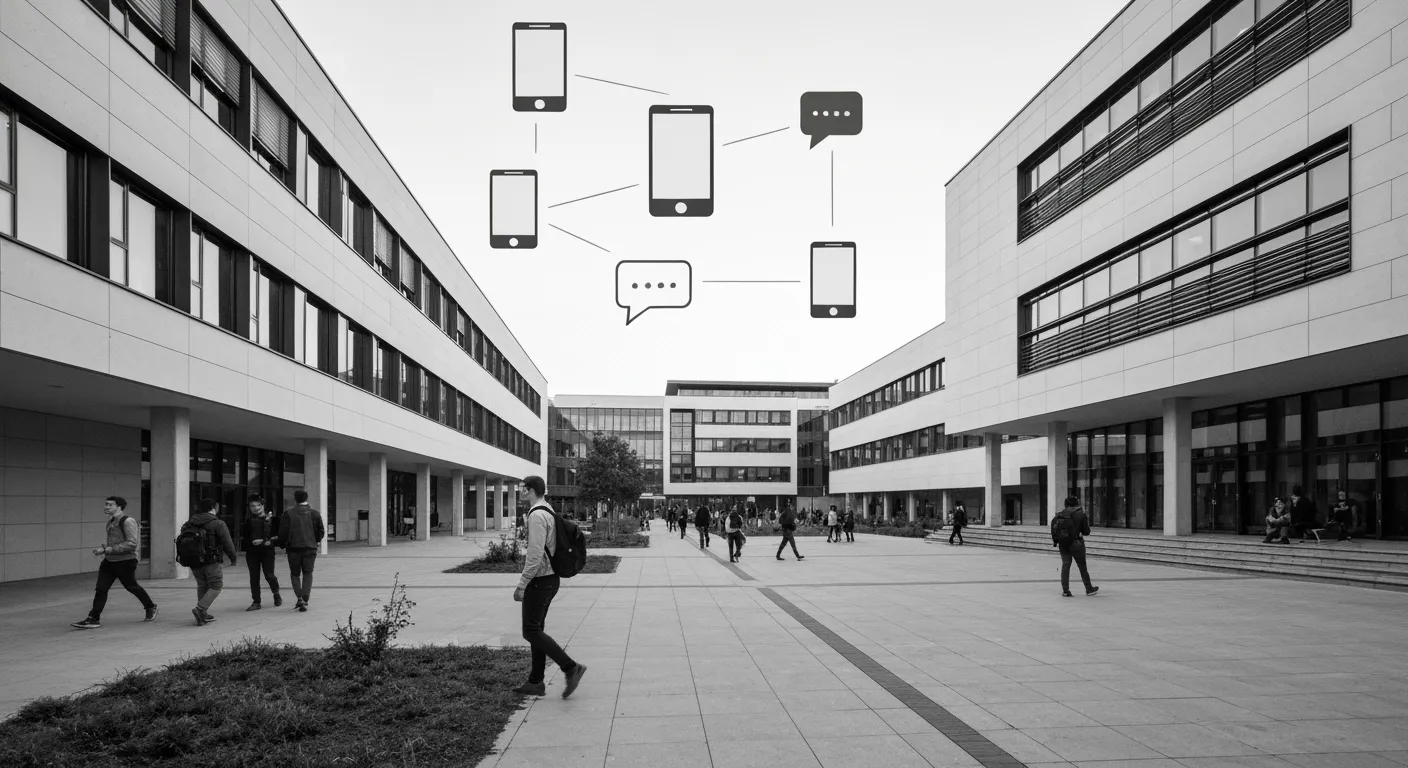
A New Era in Campus Connectivity
Universities and campus ministries are increasingly embracing SMS RSVP systems as a strategic response to changing communication preferences and the need for efficient engagement. The shift from traditional email and phone outreach to text messaging reflects students' mobile-first lifestyles and the undeniable effectiveness of SMS in driving higher response rates, event attendance, and timely information dissemination. This article explores why these institutions are making the transition, the benefits they experience, critical strategies for implementation, and the broader impact on student engagement and campus safety.
Why Universities and Campus Ministries Are Embracing SMS RSVP Systems
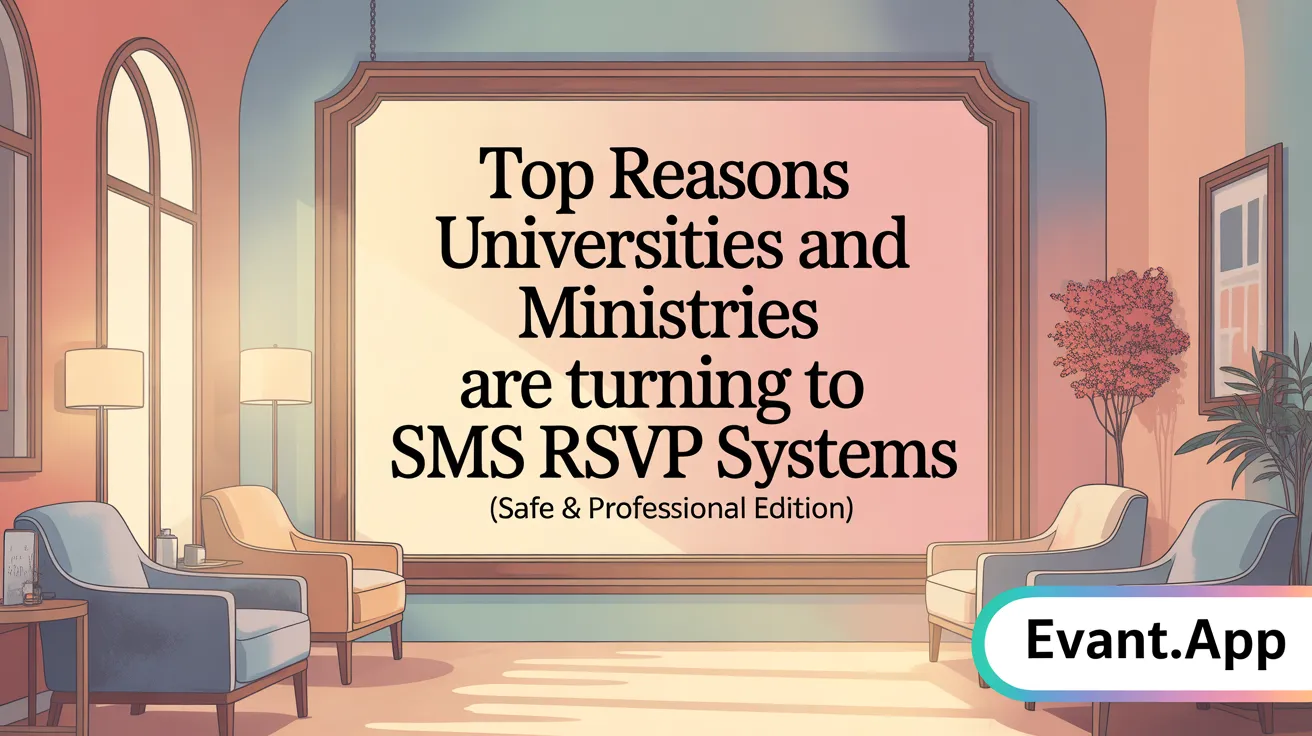
What are the main reasons universities and campus ministries are switching to SMS RSVP systems?
Higher education institutions are increasingly adopting SMS RSVP platforms because of their ability to deliver high engagement and response rates. Text messaging boasts a 98% open rate, with responses often received within minutes, making it far more effective than traditional email communications that only see about 20-33% open rates.
Students, especially Gen Z, prefer mobile-first communication, checking their phones over 20 times daily. This shift makes SMS a vital channel for timely, direct communication about campus events, deadlines, and emergencies.
These platforms enable instant interactions, allowing universities and campus ministries to send personalized messages, reminders, and updates. They also facilitate event attendance tracking to ensure better planning and engagement.
Beyond immediate communication, SMS systems support broader goals such as increasing student retention, enhancing recruitment efforts, and fostering alumni relations. They provide a convenient, accessible way to maintain ongoing relationships, strengthening campus community ties.
Overall, integrating SMS RSVP systems improves communication efficiency and effectiveness, leading to higher satisfaction and engagement among students, staff, and alumni.
Benefits of SMS RSVP Systems in Higher Education and Campus Ministries
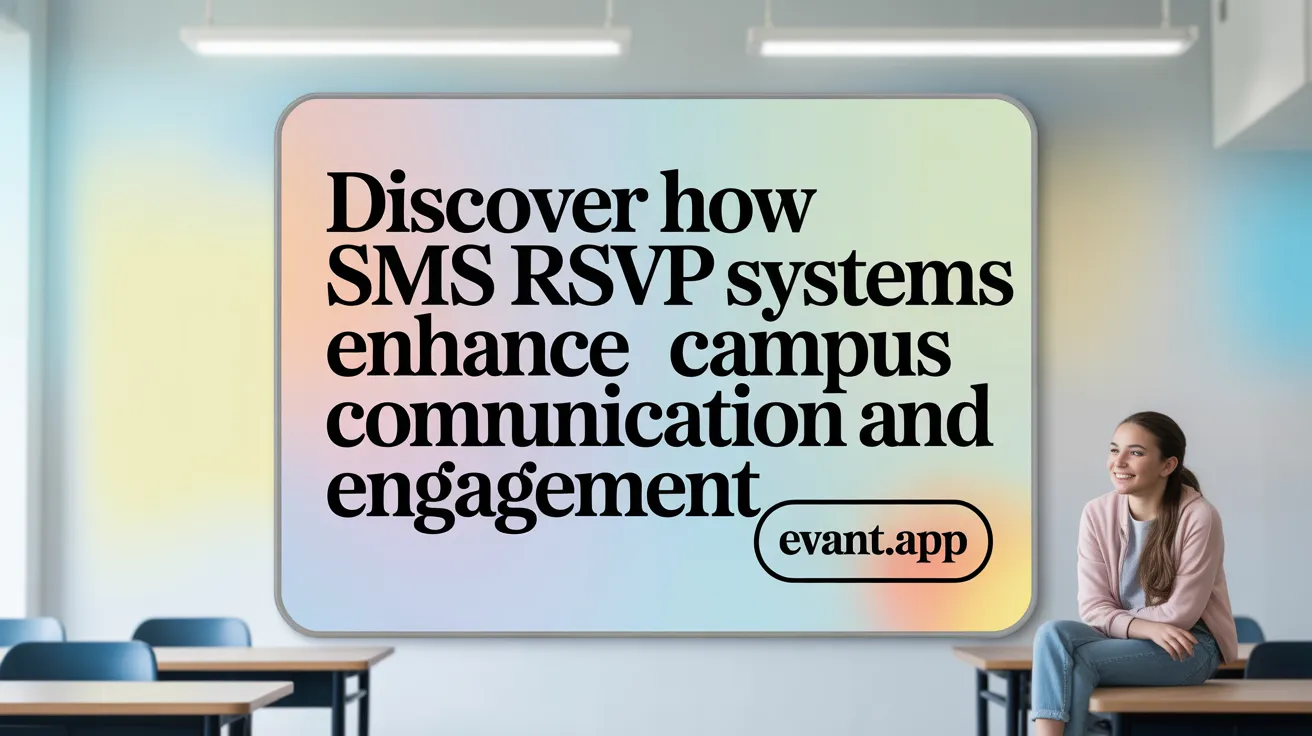
What are the benefits of adopting SMS RSVP systems in higher education and campus ministries?
Implementing SMS RSVP systems in colleges, universities, and campus organizations offers numerous advantages. One of the primary benefits is improved communication efficiency and immediacy. Since over 98% of text messages are read within minutes, these platforms enable instant, direct contact with students and staff. This rapid communication ensures that important updates, event reminders, or emergency alerts reach recipients quickly, reducing delays and misunderstandings.
Increased response rates and engagement are major outcomes. Studies show that SMS response rates average around 45%, substantially higher than the 6% typical for emails. This heightened responsiveness encourages more students and stakeholders to participate in events, surveys, and initiatives, fostering greater community involvement.
Streamlining administrative and operational tasks is another significant benefit. SMS platforms can automate confirmations for attendance, send reminders for deadlines, or distribute detailed information about campus activities. These features lessen the administrative burden on staff while enhancing accuracy and timeliness.
Supporting student retention and strengthening campus community are also key advantages. Real-time feedback through surveys and personalized outreach helps identify at-risk students and address their needs proactively. Moreover, targeted messages based on student data can encourage ongoing engagement, boosting retention and satisfaction.
Finally, SMS RSVP systems facilitate targeted outreach and responsive communication. Institutions can segment audiences based on enrollment year, program, or geographic location to deliver relevant content. This generates a stronger sense of connection and support, ultimately contributing to improved organizational effectiveness and a vibrant campus environment.
Overall, the adoption of SMS RSVP solutions not only enhances communication and operational functions but also cultivates a supportive and responsive campus culture, essential for modern higher education success.
Trends and Motivations Fueling the Shift to SMS Communication in Campus Settings
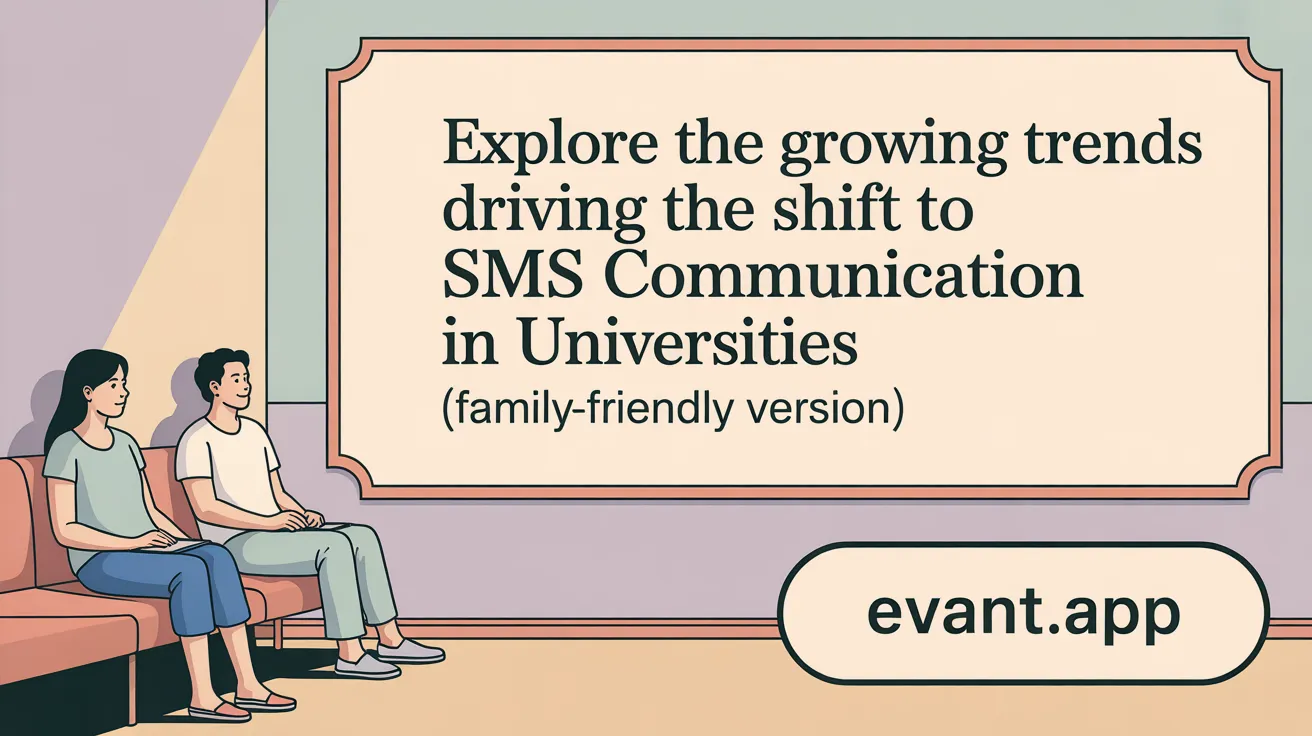
What trends and motivations are driving the transition to SMS communication methods in universities and campus ministries?
Universities and campus ministries are increasingly adopting SMS as a primary communication tool due to its remarkable engagement metrics. Text messaging boasts an open rate of about 98%, with most messages read within minutes of receipt. This is a significant leap from traditional email outreach, which typically sees open rates of only 20–33%. Response rates also far exceed those for email, standing at approximately 45% compared to just 6%.
This high receptivity is driven by the prevalent use of smartphones among students. Nearly 98% of young adults aged 18-29 own a smartphone and check their devices averaging 58 times daily. The younger demographic, especially Generation Z, begins smartphone use early, around age 10, and prefers instant, mobile-centered communication. They are flooded with media and notifications, making traditional outreach less effective.
Institutions are motivated to use SMS to improve engagement by providing immediate, personalized updates about admissions, deadlines, campus events, safety alerts, and more. The ability to send targeted messages—thanks to advanced platform features like segmentation and automation—helps tailor communication based on student data, academic programs, or engagement history.
Furthermore, SMS enhances campus safety by enabling real-time emergency alerts that are read within minutes, significantly improving response times. For recruitment and enrollment efforts, personalized SMS campaigns have demonstrated increases—some institutions report a 7% rise in enrollment or a 30% boost in student engagement.
Advanced SMS platforms incorporate features like integration with Student Information Systems (SIS), Customer Relationship Management (CRM), automation, and two-way communication. These tools allow for efficient, secure, and compliant messaging that supports everything from administrative reminders to dynamic, conversational interactions.
In summary, the move toward SMS in higher education is driven by the need for faster, more effective communication that aligns with student preferences, technological capabilities, and institutional goals of safety, engagement, and enrollment growth.
Enhancing Communication, Engagement, and Efficiency with SMS RSVPs

How do SMS RSVPs improve communication, engagement, and operational efficiency in educational settings?
SMS RSVPs transform how educational institutions communicate by offering a direct and rapid channel that students actively prefer. With an impressive 98% open rate, most messages are read within minutes, ensuring that crucial notifications about deadlines, events, or alerts are promptly received. This immediacy enhances communication clarity and reduces delays.
The high response potential, averaging around 45%, significantly surpasses traditional email engagement levels, which hover at approximately 6%. This responsiveness fosters more dynamic interaction, allowing students to confirm attendance, ask questions, or provide feedback quickly and easily. Personalization through segmentation—such as targeting specific student groups based on program, year, or behavior—further boosts response quality and relevance.
Operationally, SMS RSVPs promote efficiency by automating communications and integrating seamlessly with systems like Student Information Systems (SIS) and Customer Relationship Management (CRM) platforms. Such integration enables automated messaging, scheduling, and data collection, reducing administrative workload and minimizing manual effort. Data analytics derived from these platforms help institutions analyze engagement patterns, optimize messaging timing, and tailor content to maximize impact.
Additionally, features like automation and AI-driven responses ensure timely follow-ups and reduce response times for inquiries related to enrollment, financial aid, or campus events. These systems can also segment audiences for targeted outreach, improve event attendance, and increase overall engagement.
By employing scheduling tools, segmentation strategies, and performance tracking, institutions can continually refine their messaging approach. This not only improves communication efficiencies but also enhances student satisfaction and retention. Cost savings are realized through reduced print and outreach expenses, while operational workflows become more streamlined.
In conclusion, SMS RSVPs are a vital component of modern educational communication strategies, blending immediacy, personalization, and automation to foster timely, relevant, and efficient interactions. This approach promotes increased participation, better resource management, and stronger relationships throughout students' educational journeys.
Best Practices and Strategies for Implementing SMS RSVP Platforms on Campus
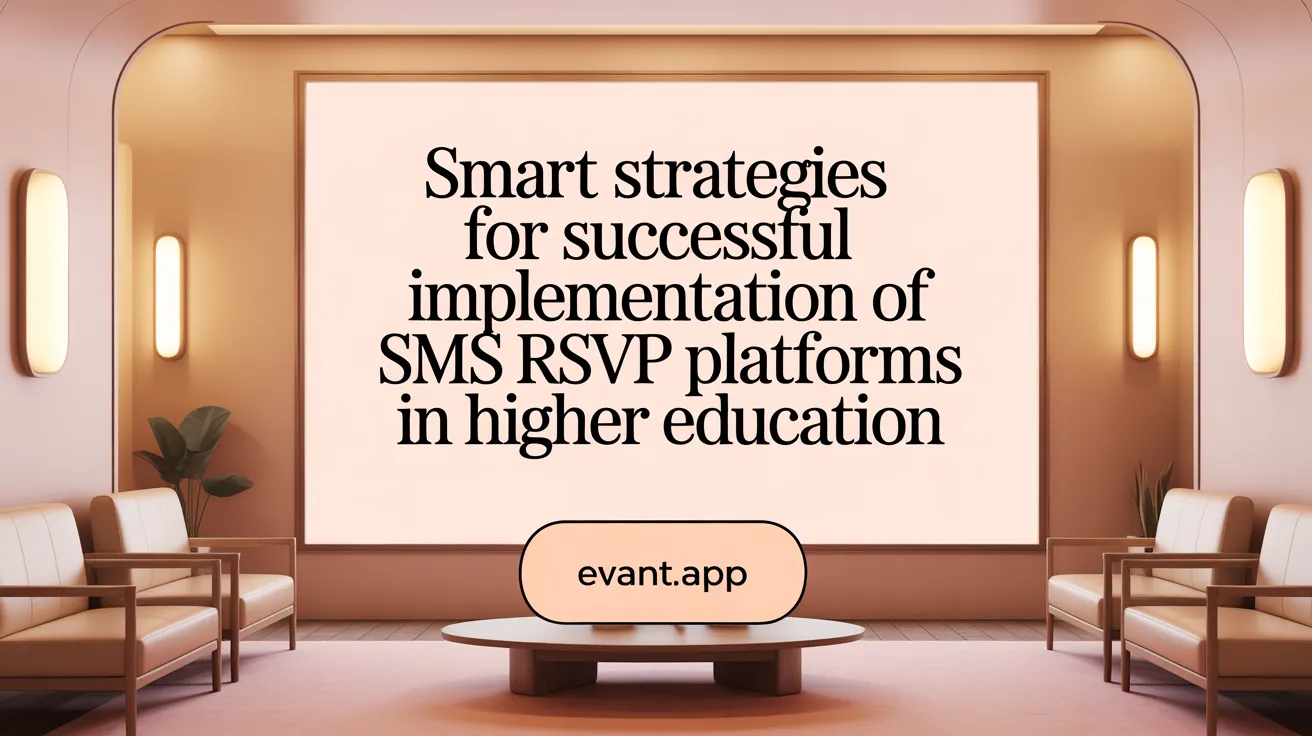
What strategies and best practices should campuses follow when implementing SMS RSVP platforms?
Implementing SMS RSVP platforms effectively requires a combination of technological integration, regulatory adherence, and strategic communication practices. First, universities should integrate these platforms with their existing Student Information Systems (SIS) and Customer Relationship Management (CRM) systems. This integration allows for personalized messaging based on student data, enhancing relevance and engagement.
Obtaining clear consent from students is crucial. Institutions must employ transparent opt-in processes, clearly explaining how their data will be used and ensuring students can easily opt out at any time. Compliance with privacy regulations such as FERPA, TCPA, and GDPR is non-negotiable; these laws protect student data and phase the way for privacy-conscious communication.
To maximize engagement, messages should be concise, purposeful, and timed strategically — ideally between 10 a.m. and 7 p.m., Tuesday through Thursday. This timing increases the likelihood of messages being read and responded to promptly. To foster ongoing dialogue, platforms should support two-way communication, enabling students to reply and provide feedback directly via SMS.
Automation and segmentation are additional best practices. Automating reminders and invitations, based on specific student groups or milestones, ensures messaging remains relevant without overwhelming staff. Trackable links within messages allow institutions to measure click-through rates and gather insights on student behavior.
Finally, a multichannel communication approach enhances overall engagement. Combining SMS with email, social media, and web platforms creates a cohesive message ecosystem. Continually analyzing metrics such as response rates, opt-outs, and engagement levels helps refine strategies, boosting participation and building stronger student-institution relationships.
By following these comprehensive strategies, universities can leverage SMS RSVP platforms effectively, increasing event attendance, improving student retention, and strengthening communication channels.
Use Cases of SMS in Student Engagement, Recruitment, Event Management, and Campus Safety
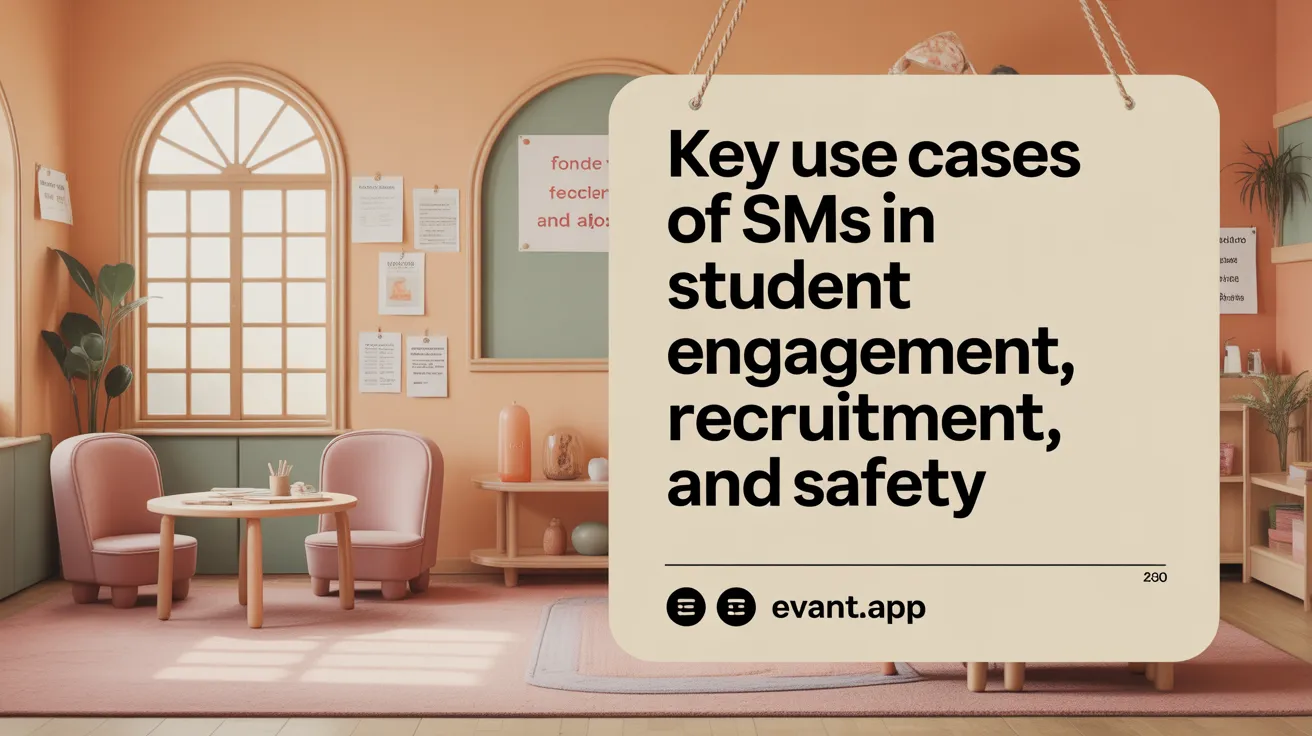
What are common use cases of SMS in student engagement, recruitment, and event management?
SMS serves as a highly effective communication channel for various university activities. One of the most common uses is sending timely invitations and reminders for campus events such as open houses, orientation sessions, cultural festivals, and club activities. These messages help increase student involvement and participation.
In recruitment, SMS provides prospective students with application updates, important deadlines, and personalized outreach, which can significantly boost engagement and conversion rates. For example, universities send reminders to complete applications or attend virtual tours, making it easier to connect with potential students.
Moreover, SMS facilitates quick RSVPs and feedback collection through surveys or polls, enabling real-time engagement. It also plays a crucial role in emergency situations by sending immediate alerts about safety issues, weather warnings, or campus security threats.
Administrators utilize SMS for essential updates such as tuition deadlines, financial aid notifications, dorm assignments, and campus closure alerts, supporting student retention and operational efficiency. The combination of high open rates, automation, and the ability to target specific groups makes SMS an invaluable tool in managing the entire student lifecycle.
How does SMS communication impact safety and emergency response in educational settings?
During emergencies, SMS significantly enhances campus safety by allowing institutions to quickly and reliably broadcast critical alerts to large groups of students and staff. Whether dealing with natural disasters, security breaches, or active threat situations, rapid communication via SMS reduces misinformation and panic.
With SMS, campuses can notify everyone immediately about the nature of the incident, provide instructions for evacuation or lockdown, and coordinate response efforts efficiently. Its directness ensures most messages are read within minutes, making it invaluable in urgent scenarios.
Many universities also integrate SMS alerts with other channels, such as voice calls and location-based services, to improve situational awareness. Regular safety reminders and policy updates via SMS foster a prepared campus community.
However, it’s important to carefully manage SMS policies, including opt-in requirements and message frequency, to prevent overload and misinformation during emergencies. When properly implemented, SMS can be a powerful safety tool that enhances real-time response, protecting students, staff, and visitors alike.
The Future of Campus Communication Is Mobile and Immediate
The widespread adoption of SMS RSVP systems by universities and campus ministries marks a critical evolution in how institutions communicate with their communities. Driven by undeniable trends such as the preference for texting among Gen Z students and the superior response rates of SMS, these platforms enhance engagement, operational efficiency, and safety outcomes. Implementing best practices around personalization, compliance, and multichannel integration ensures that these systems maximize their potential. As campuses continue to embrace mobile-first technologies, SMS RSVP systems will remain indispensable tools for recruitment, event management, and crisis communication—ultimately fostering stronger, more connected, and responsive campus communities.
References
- The Rise of Higher Education Text Messaging Platforms
- Why Universities Must Employ an SMS Strategy to Recruit Gen Z ...
- The Rise of Text Messaging Platforms in Higher Education ...
- The Impact of SMS Messaging in Higher Education Recruitment
- 6 Ways Universities and Schools are Using Text Messaging
- How Schools & Universities can benefit from SMS
- Higher Education Text Messaging: Strategies to Improve Student ...
Related Blogs


How Community Churches Should Leverage SMS to Boost Engagement
Michael PedoeemStruggling with low church attendance? Discover how to leverage SMS to reach 98% of your congregation instantly and review the top 5 church communication platforms.
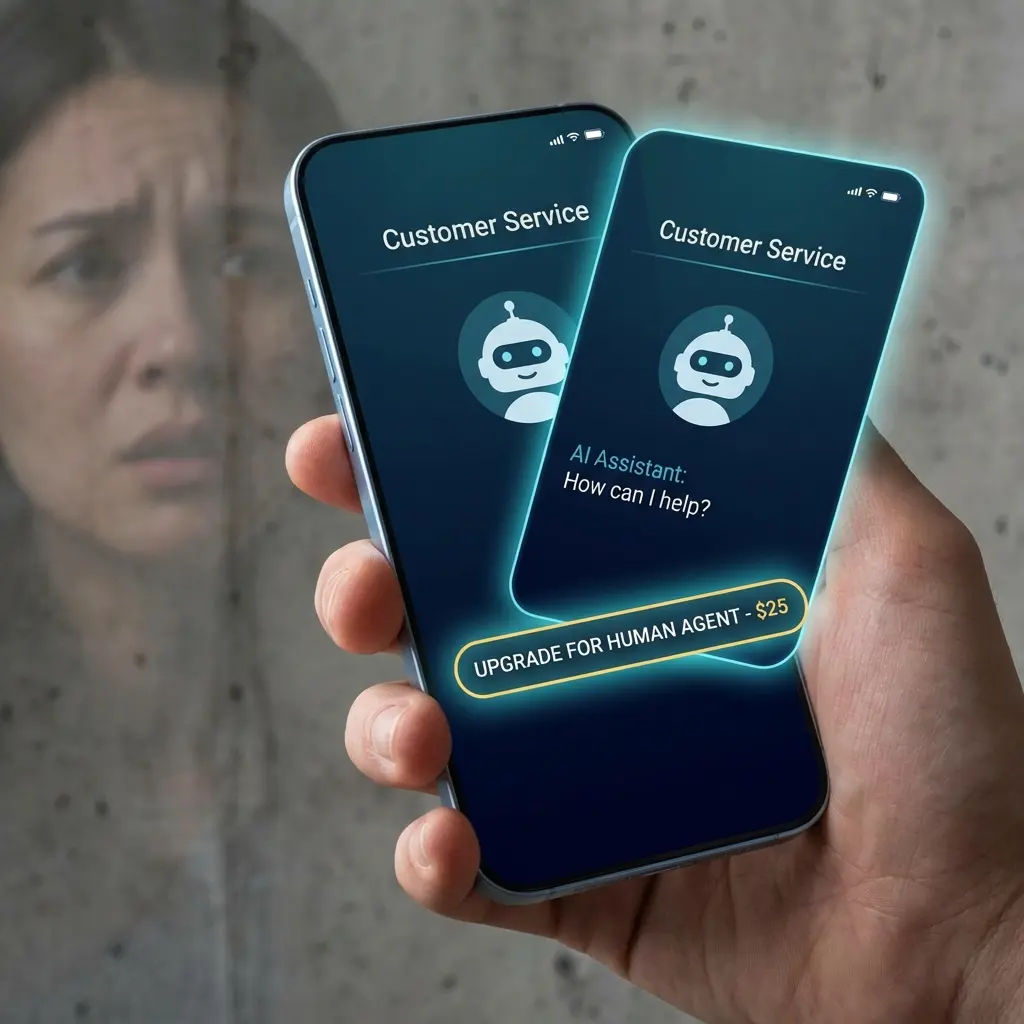

SMS for Churches: A Guide to Better Engagement
Michael PedoeemLearn how SMS for churches can boost engagement, improve communication, and streamline event management. Discover best practices for church texting today.
Ready to transform your community









